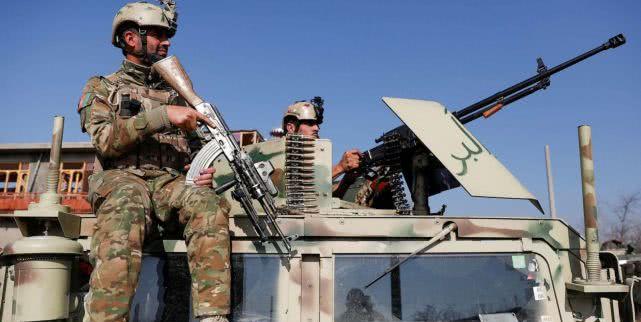
According to Russian media sources, on March 10, Gen. Kenneth Mackenzie, commander of the Central Command of the U.S. Armed Forces, acknowledged at a hearing held by the U.S. House Armed Services Committee that the United States had provided support to the Taliban in Afghanistan when they were fighting extremist groups in the country. "Over the past few months, we can see in eastern Afghanistan how the Taliban have first cut and then eliminated extremist groups in the southern province of Nangarhar, and they've done a very effective job," MacKenzie said at the hearing. This is one of the most difficult areas of the world (to conduct military operations). They (the Taliban) paid a high price, and many people lost their lives as a result. ”
Members of Congress asked MacKenzie to make it clear whether the Taliban were running the fight against extremist groups on their own or with the help of the United States. In response, MacKenzie said, "We have provided very limited support, which I describe as very limited support." He added, "Because the U.S. has provided only limited support, the Taliban have demonstrated their capabilities." It was a bloody massacre, but they succeeded. Prior to this, U.S. Pentagon representatives had repeatedly accused other countries of supporting the Afghan Taliban. Lt. Gen. Austin Scott Miller, commander of U.S. forces and NATO forces in Afghanistan, argued in 2018 that the afghan mediation would not lead because Russia, Iran and Pakistan appeared to be supporting the Taliban, though U.S. officials did not mention that some U.S. military personnel had gone beyond so-called assistance and assistance, and they even bribed the Taliban to achieve their own goals.
In December, according to U.S. media reports, families of more than one hundred and forty U.S. soldiers and mercenaries who died or were wounded during the war in Afghanistan filed a lawsuit in a U.S. federal court alleging that several large companies that "have lucrative operations in Afghanistan" had "paid protection fees" to the Taliban through a series of subcontractors to bribe Afghan militants to save money on security. Between 2009 and 2017, between 2009 and 2017, 25 to 45 percent of the funds spent on major projects such as the Kajjaki Dam and part of the Ring Road in Afghanistan went into the pockets of Afghan militants, the indictment said. Contractors use Pentagon money to hire subcontractors, subcontractors hire their own subcontractors, and so on, until some of that money goes straight into the hands of the Taliban.
This comes after Alice Wells, the State Department's first deputy secretary of state for South and Central Asia, said Washington did not support the idea of possible cooperation with the Taliban, which is designed to balance the strengthening of extremist groups. Wells also commented on regular allegations by U.S. officials against Russia for supplying weapons to the Taliban. Wells said Russia and Iran were allegedly prepared to consider the possibility of cooperative interaction with the Taliban to eliminate the strengthening of the extremist group's branch in Afghanistan. At the same time, Wells confirmed that the United States does not rule out direct negotiations with the Taliban in the future to resolve the Afghan issue.
Russia has repeatedly denied denying allegations of support for the Taliban, and the U.S. government has not provided any evidence of Moscow's support for the Taliban. On February 29, the United States signed a peace agreement with representatives of the Taliban in Doha. Under the agreement, the United States, its allies and the international coalition it leads intend to withdraw its troops from Afghanistan within 14 months. In addition, the United States pledged to assist in removing the Taliban from the U.N. sanctions list by May and lifting the restrictive measures imposed on it by August.